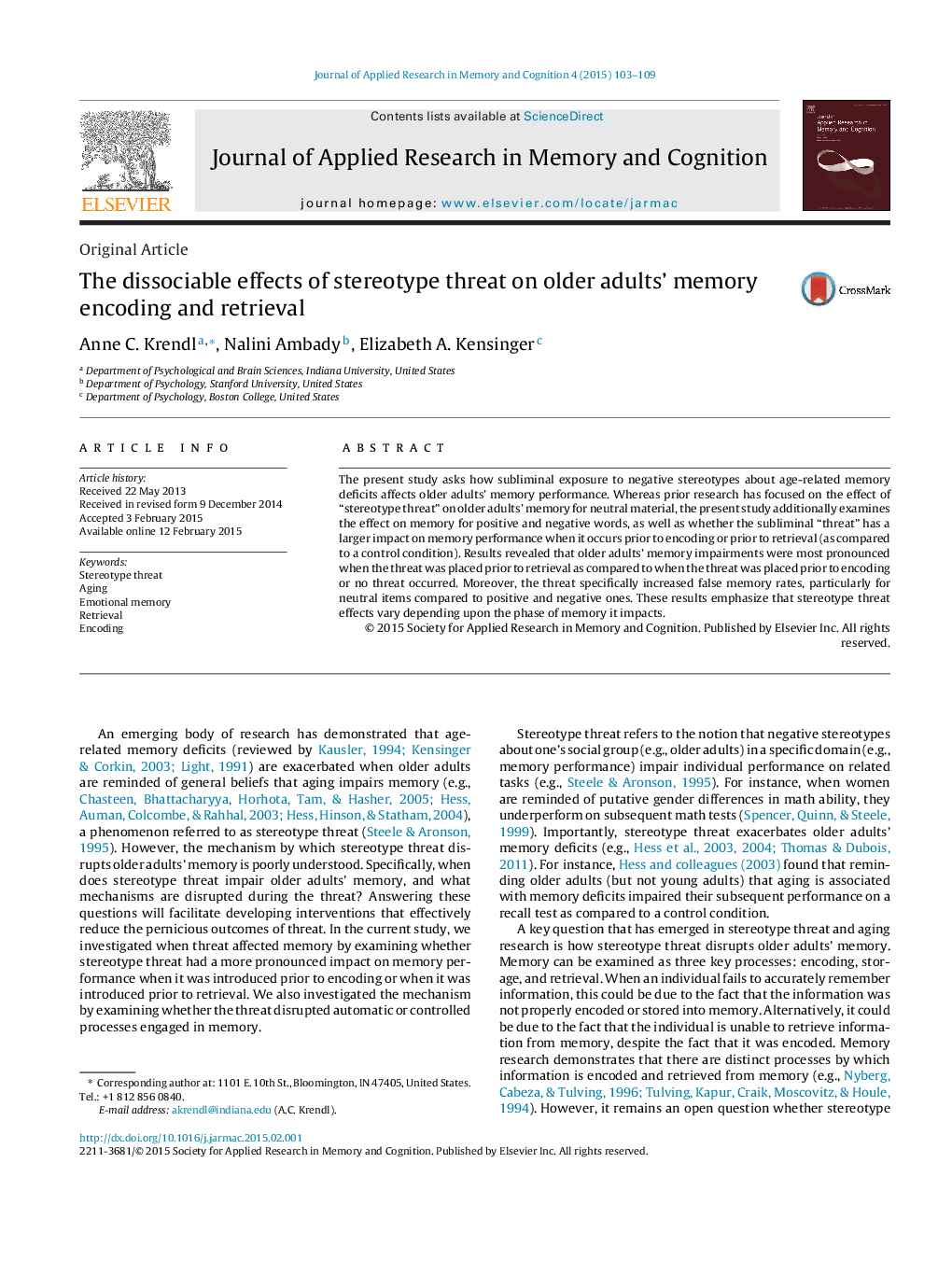| Article ID | Journal | Published Year | Pages | File Type |
|---|---|---|---|---|
| 881702 | Journal of Applied Research in Memory and Cognition | 2015 | 7 Pages |
•Negative stereotypes about aging and memory disrupt older adults’ memory.•We examine the mechanism by which negative stereotypes disrupt emotional memory.•We introduced subliminal negative stereotypes prior to encoding or retrieval.•Negative stereotypes prior to retrieval had the greatest disruption on memory.•Negative stereotypes therefore may disrupt monitoring processes at retrieval.
The present study asks how subliminal exposure to negative stereotypes about age-related memory deficits affects older adults’ memory performance. Whereas prior research has focused on the effect of “stereotype threat” on older adults’ memory for neutral material, the present study additionally examines the effect on memory for positive and negative words, as well as whether the subliminal “threat” has a larger impact on memory performance when it occurs prior to encoding or prior to retrieval (as compared to a control condition). Results revealed that older adults’ memory impairments were most pronounced when the threat was placed prior to retrieval as compared to when the threat was placed prior to encoding or no threat occurred. Moreover, the threat specifically increased false memory rates, particularly for neutral items compared to positive and negative ones. These results emphasize that stereotype threat effects vary depending upon the phase of memory it impacts.
